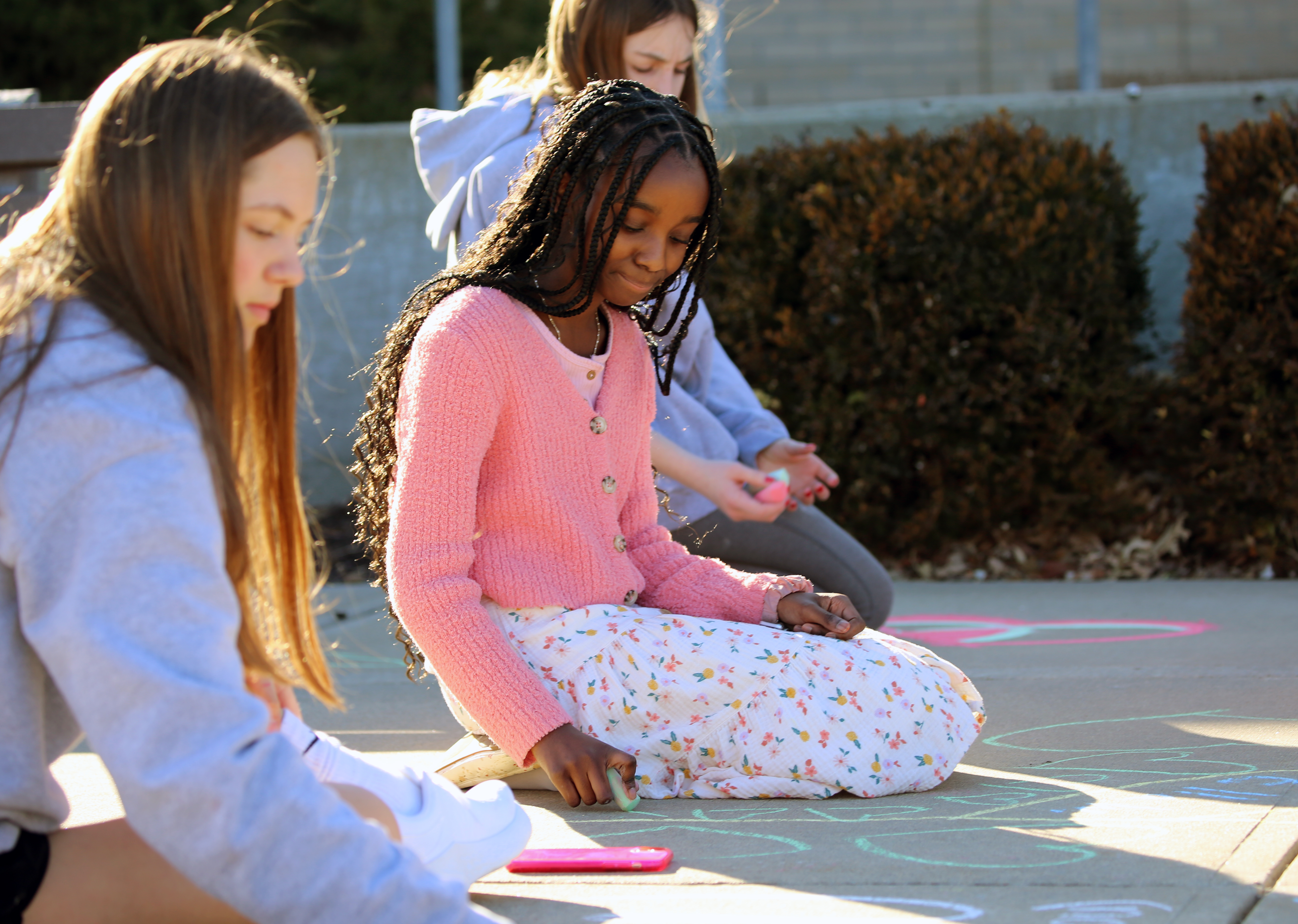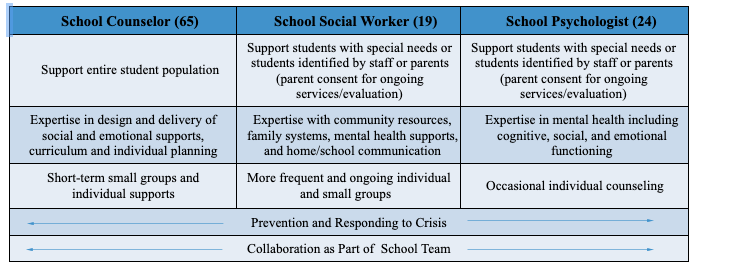Student Well-Being
Page Navigation
STUDENT WELL-BEING SUPPORT
-
HELP ME NOW
If you or your child is in immediate danger, call 911.

The online database contains more than 2,500 local and national support group resources. Groups and resources can be searched by topic and/or by county. Topics include medical conditions, disabilities, relationship issues, parenting, grief, abuse, caregiving and addiction, among many others.

-
ABOUT HEALTHY DECISION MAKING
What is
healthy decision making?
Healthy decision making is a planned process of selecting from two or more possible options in order to solve a problem or set a goal. Healthy decision making allows students to feel empowered, realize their goals and change unhealthy habits.While teenagers may exhibit problem-solving abilities that are comparable to adults, their brains are not as developed in the areas of regulating impulsivity and stress. This means teen decision-making skills are much less mature than adults during times of high stress and arousal. Given that adolescence is a time of great change and development, stress in their lives is inherent.
The ability of teenagers to make healthy decisions often plays a role in risk-taking behavior. Because adolescents are more likely to engage in risk-taking behavior than adults (due to their brain development and the social environment of adolescence) the ability to develop healthy decision-making habits during this time becomes very important.
Decision-making process
It can be helpful for teenagers to have a structured way to make decisions. Adolescent brains are prone to impulsivity. If we can teach them a process for making decisions, we can help moderate some of the effects of that impulsivity. While they may not need a process for simple day-to-day decisions, like what to eat for breakfast, a structured process can be helpful in bigger decision making such as whether to attend a party, skip class or what to do after high school.
Most research on problem-solving and decision making in teenagers suggests teaching a 5-step problem-solving model:- define the problem/decision to be made
- brainstorm options
- evaluate the options
- make a plan of action
- evaluate results and make modifications as necessary
While parents cannot make all the decisions for their teenagers, they can help them to learn healthy decision-making skills by cooperatively helping them through the decision making process. Decision making is something that should be taught to teenagers on an incremental basis, allowing them to make more and more decisions over time. While teenagers cannot always make decisions on their own, they should play as much of a role as is appropriate for the situation.
TIPS for helping your teenager with decision making
- Reflect your understanding
Attempt to summarize the situation as you hear it for your teen. If your teen indicates that your understanding is incorrect, ask them to clarify. The point of reflecting your understanding is to both ensure you have a good understanding of the situation and how your teen is feeling about the situation, as well as to help your teen feel understood. - Share your perceptions
Ask your teen if you can share your feelings on the situation. Getting permission first will encourage listening. Once your teen gives permission, share your thoughts in a calm manner. Do not put down any of their thoughts or ideas, rather, share how you feel about the decision making position they are in. - Help in brainstorming
Once both you and your teen's thoughts and feelings have been shared, ask if it would be ok if you could help them brainstorm some ideas. Try to allow them to come up with options first and then add additional options that have not been expressed. Make sure to allow your teen to make the final decision as opposed to convincing them of one decision or another. It is important for teens to have the experience of making the final decision.
Learn more
Decision Making/Problem Solving with Teens Fact Sheet
Parenting - Decision Making: Help your children become good decision makers
UNITED WAY 211
-
The United Way of Greater Kansas City (UWGKC) maintains a comprehensive database of thousands of local and national community resources. You can find information on services for COVID-19, food, clothing, and shelter, as well as for more complex needs like health care, mental health, education, and employment. Contacting 2-1-1 is free and confidential. Language interpretation is available.

